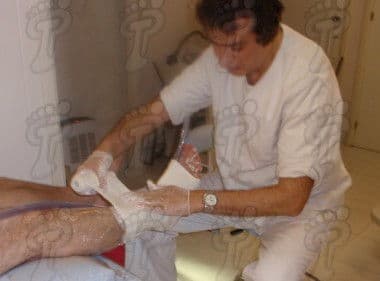Ankle orthoses, also known as AFO (ankle foot orthosis), are devices (braces) frequently used in our day-to-day practice among patients who have severe dynamic anomalies. This kind of orthesis is like an external brace adapted to the lower extremity that modifies the neuromuscularskeletal structure as well as its functionality.The ankle foot brace makes a plantar flexion in the heel’s resting phase, causing dorsiflexion of the foot during, both in the balancing and the takeoff phases during the gait. During the resting phase it helps postural correction. It is used for spastic paralysis, traumatic patients, hemiplegia caused by a vasculocerebral accident, achillea retraction in infantile cerebral palsy as well as in limitations of different kinds of foot dorsiflexion. These patients have a sudden drop of the forefoot foot due to hypotonia or the absence of the extremity’s extensor muscles. This situation obliges the patient to put excessive force in each step on the flection of the knee and the hip in order to avoid dragging the toes on the floor. A feature of the progress of these patients is the foot’s initial contact with the floor by the forefoot unlike the first shock with the heel (biomechanically correct).
We make articulated braces for those patients who meet certain conditions. These articulated braces allow a certain mobility in the plantar flexion in the support stage and dorsification in the balancing phase. With this technique we prevent the foor rigidity at zero degrees, relative to the leg, as well as the muscular atrophy and long-term osteoarticular disorders due to the extremely dynamic limitation of the brace. It is therefore very important to make a negative mold whith the weight on the foot in order to compensate for the position of the hindfoot and forefoot.

